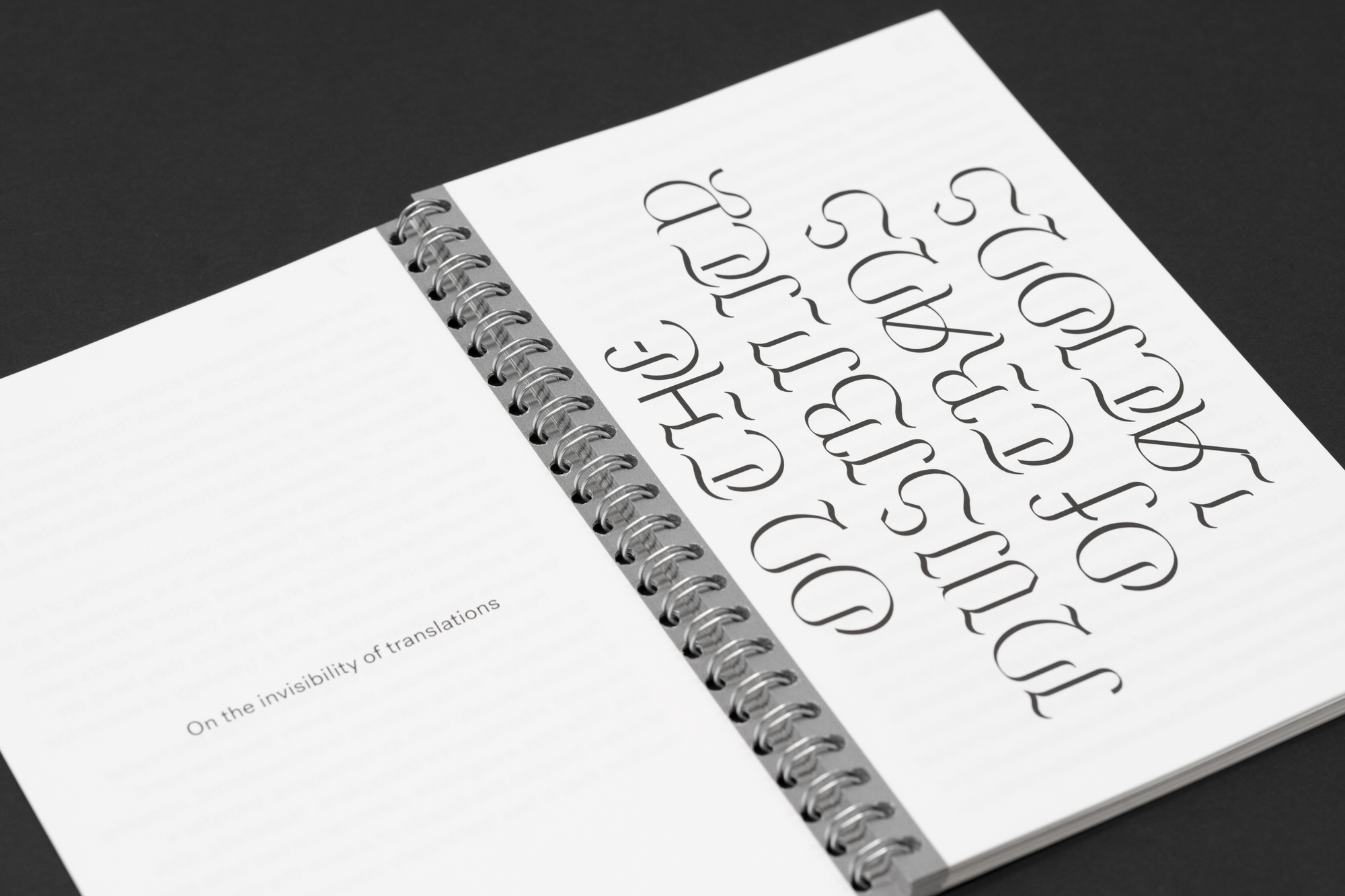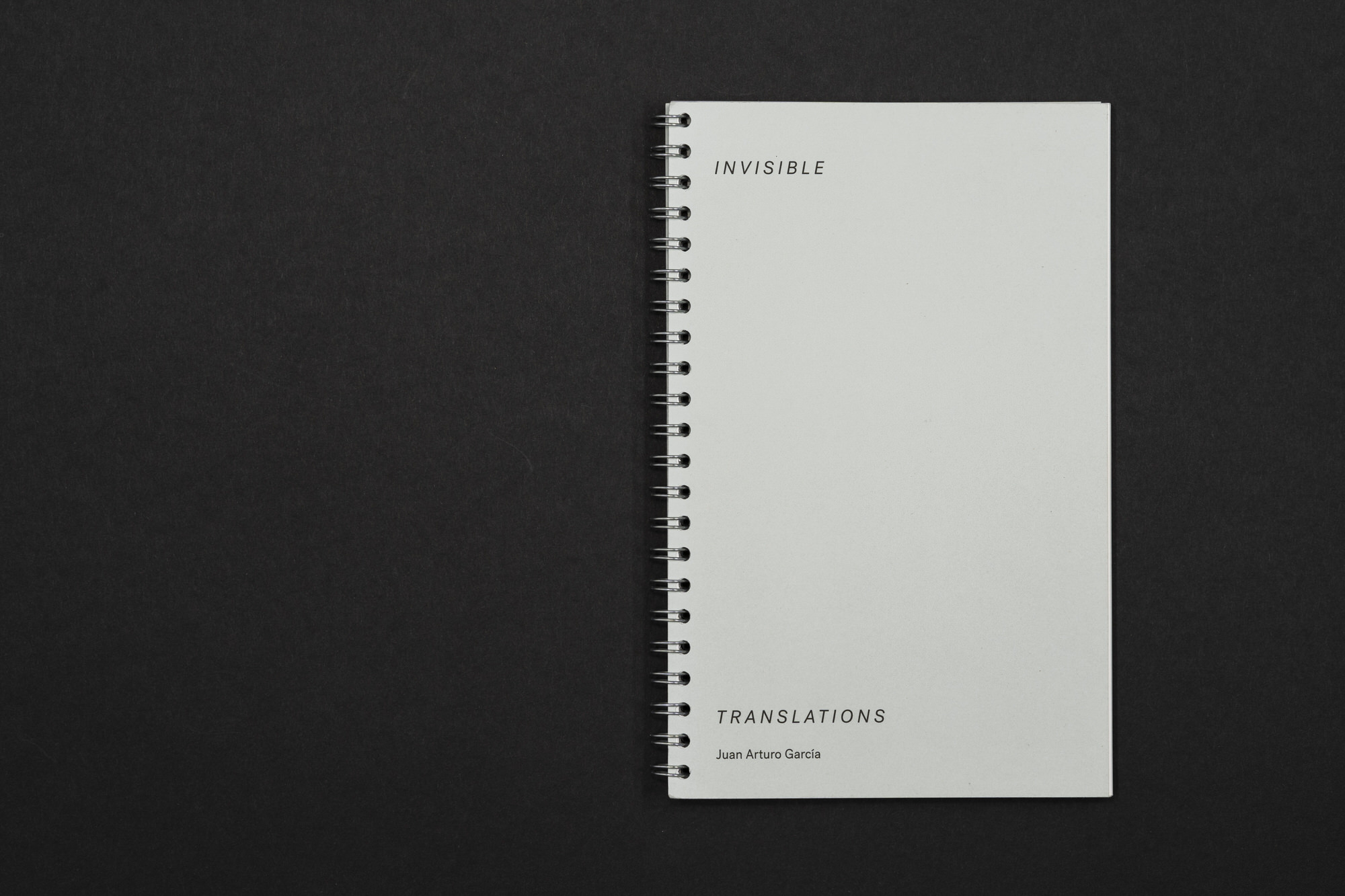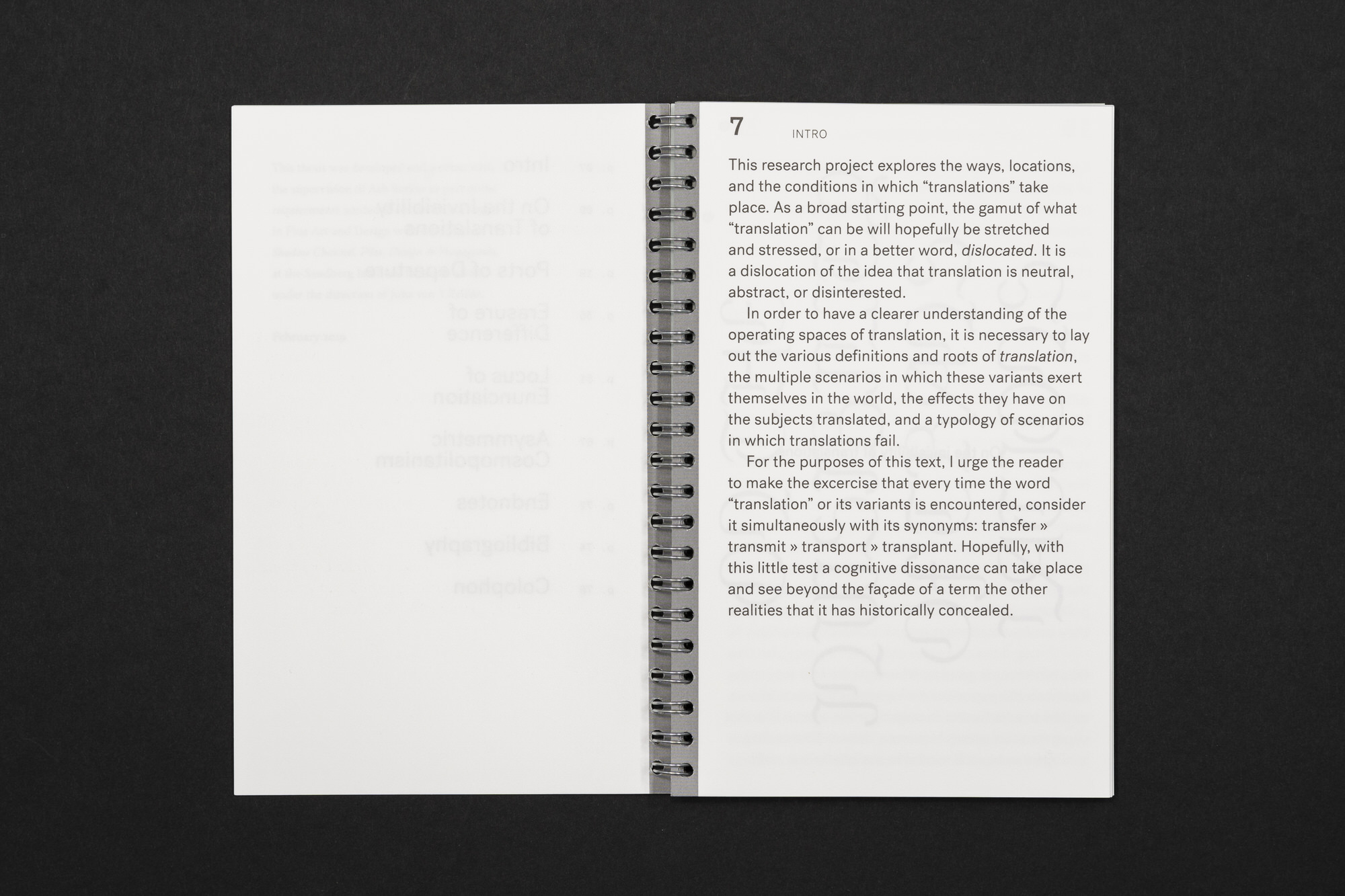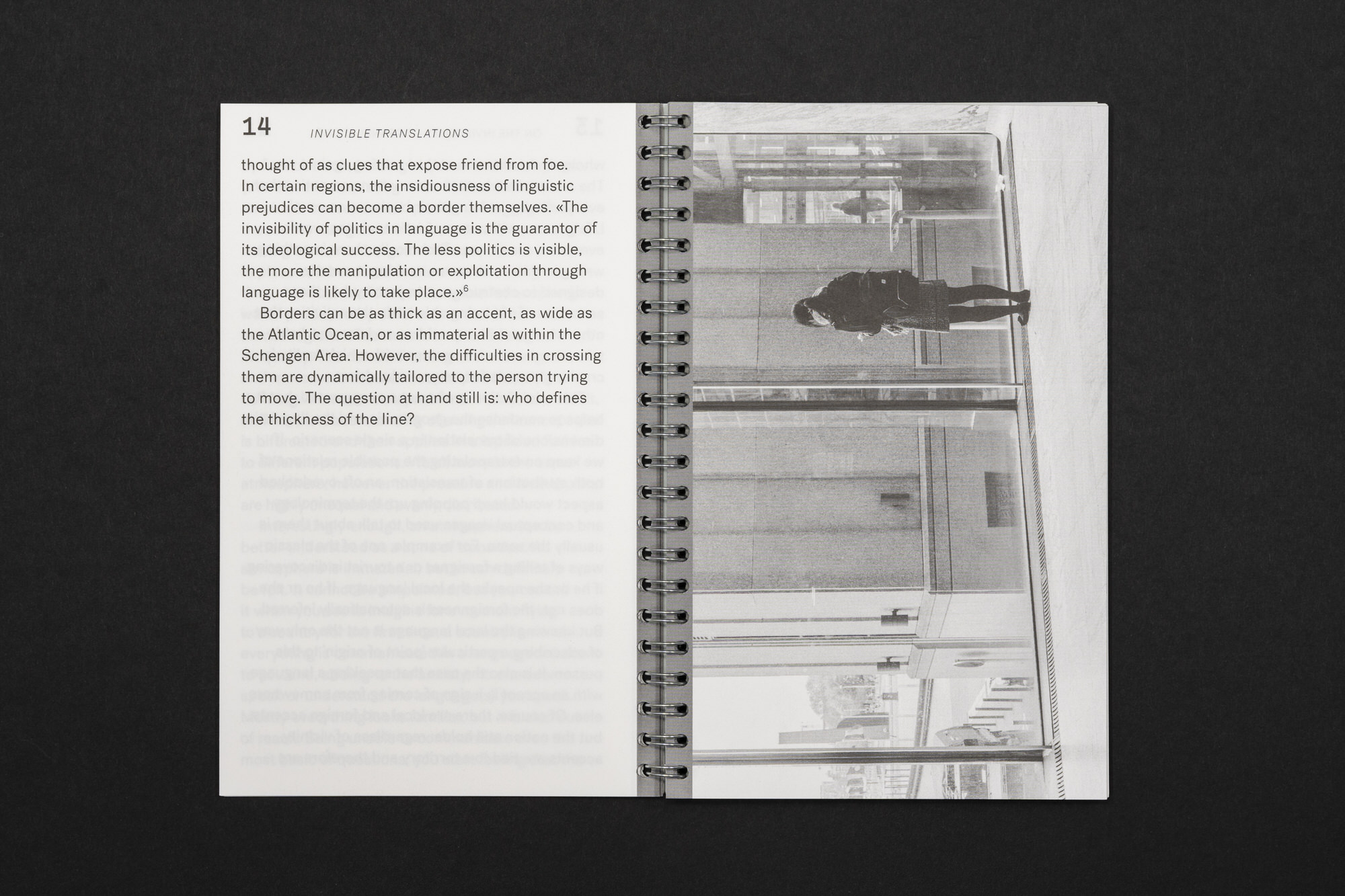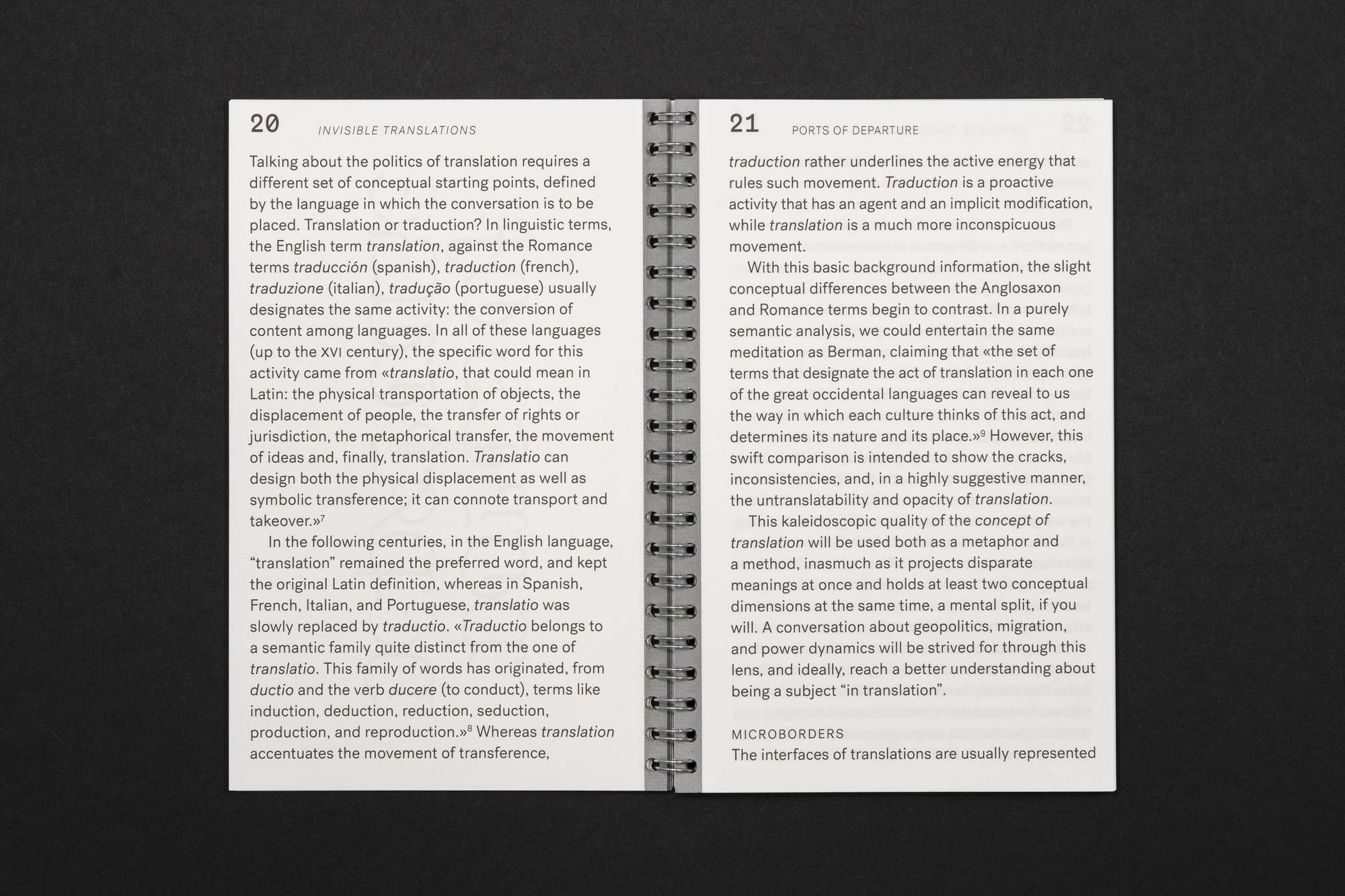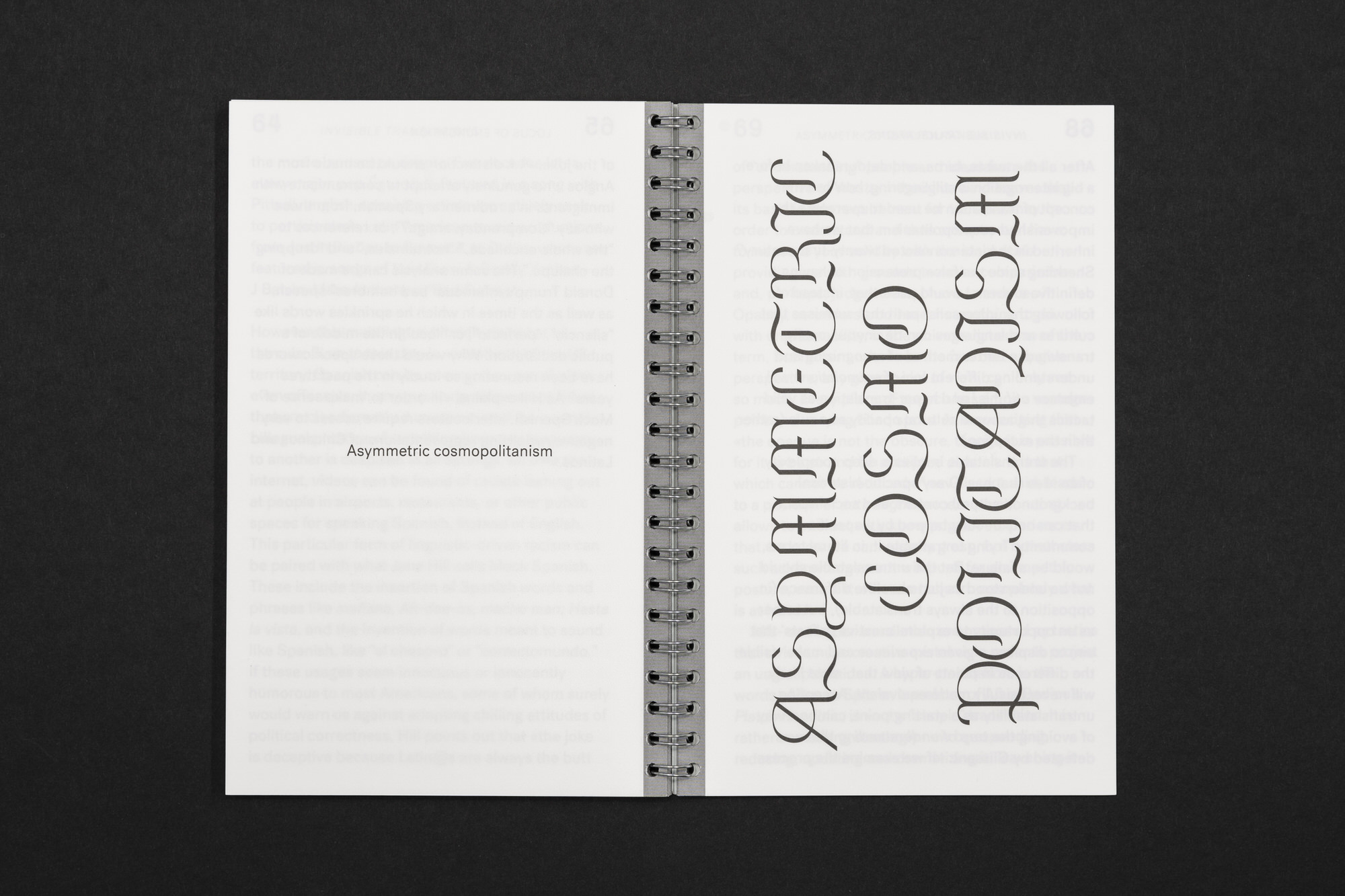Invisible Translations
An essay and research project that explores the ways, locations, and the conditions in which “translations” take place. As a broad starting point, the gamut of what “translation” is will hopefully be stretched and stressed, or in a better word, dislocated. It is a dislocation of the idea that translation is neutral, abstract, or disinterested. The book lays out the various definitions and roots of translation, the multiple scenarios in which these variants exert themselves in the world, the effects they have on the subjects translated, and a typology of scenarios in which translations fail.
Against what may be inferred from the title, the object of this thesis is not necessarily about language nor translation studies. It is rather an investigation of movement, perception, and politics. The apparent disconnect stems from the long-standing notion that the world is out there, in all its tangible reality, and we merely describe it through languages that, in a good day, seem to be interchangeable regarding their ability to picture it.
For this investigation, I try to point out different cases where geography, politics and Modernity are most visible. The spaces in which the collision of these three concepts intersect are, in a very curious way of expression, the spaces further from the center. In other words, it is in the fringes of the world where the conflicts, paradoxes and contradictions of Modernity are exposed.
Through the different kinds of translations, I strive to understand –and more importantly, link– the geographic, the linguistic, the material and the political contexts of Latin American history and how they conform a certain way of looking the world.
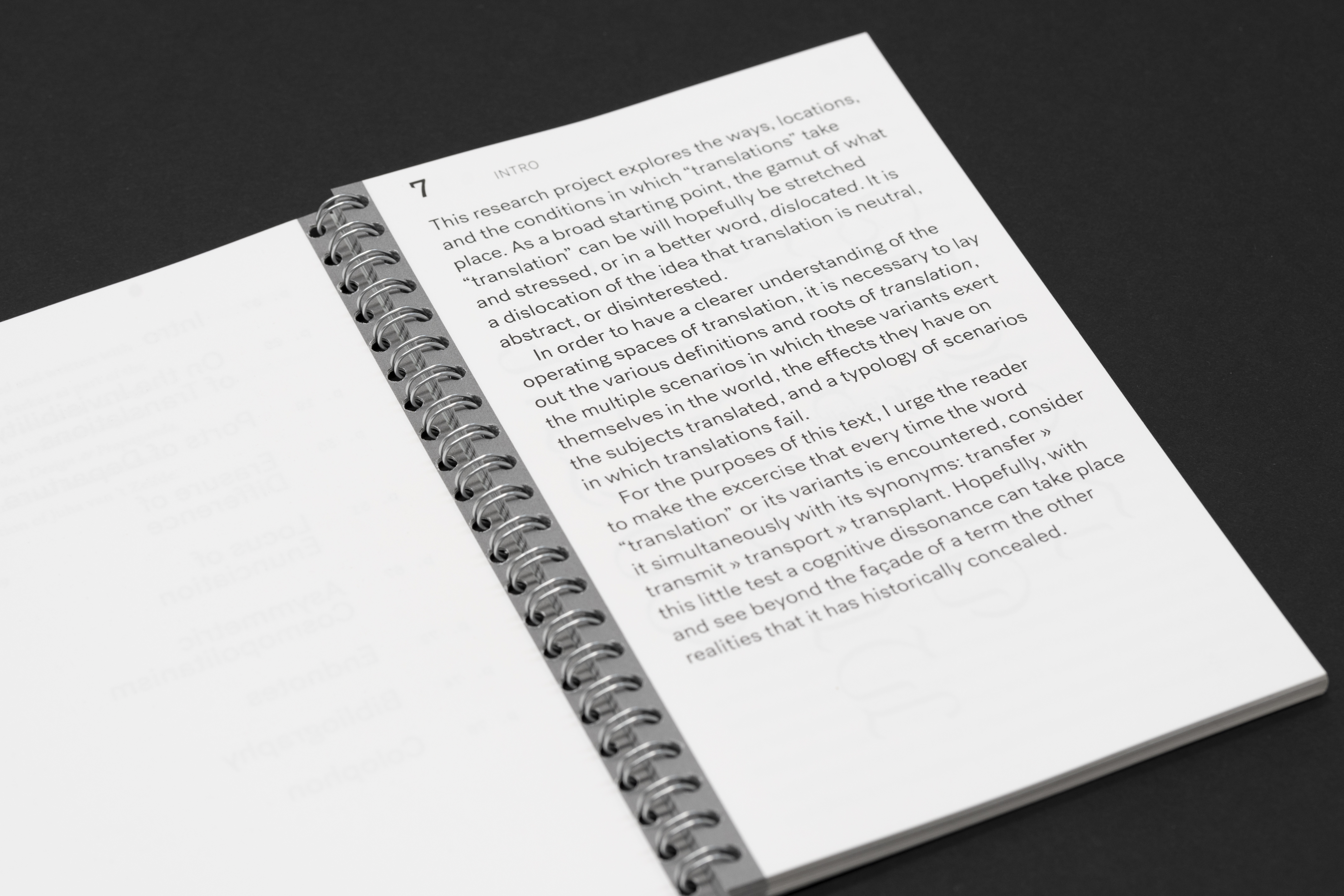
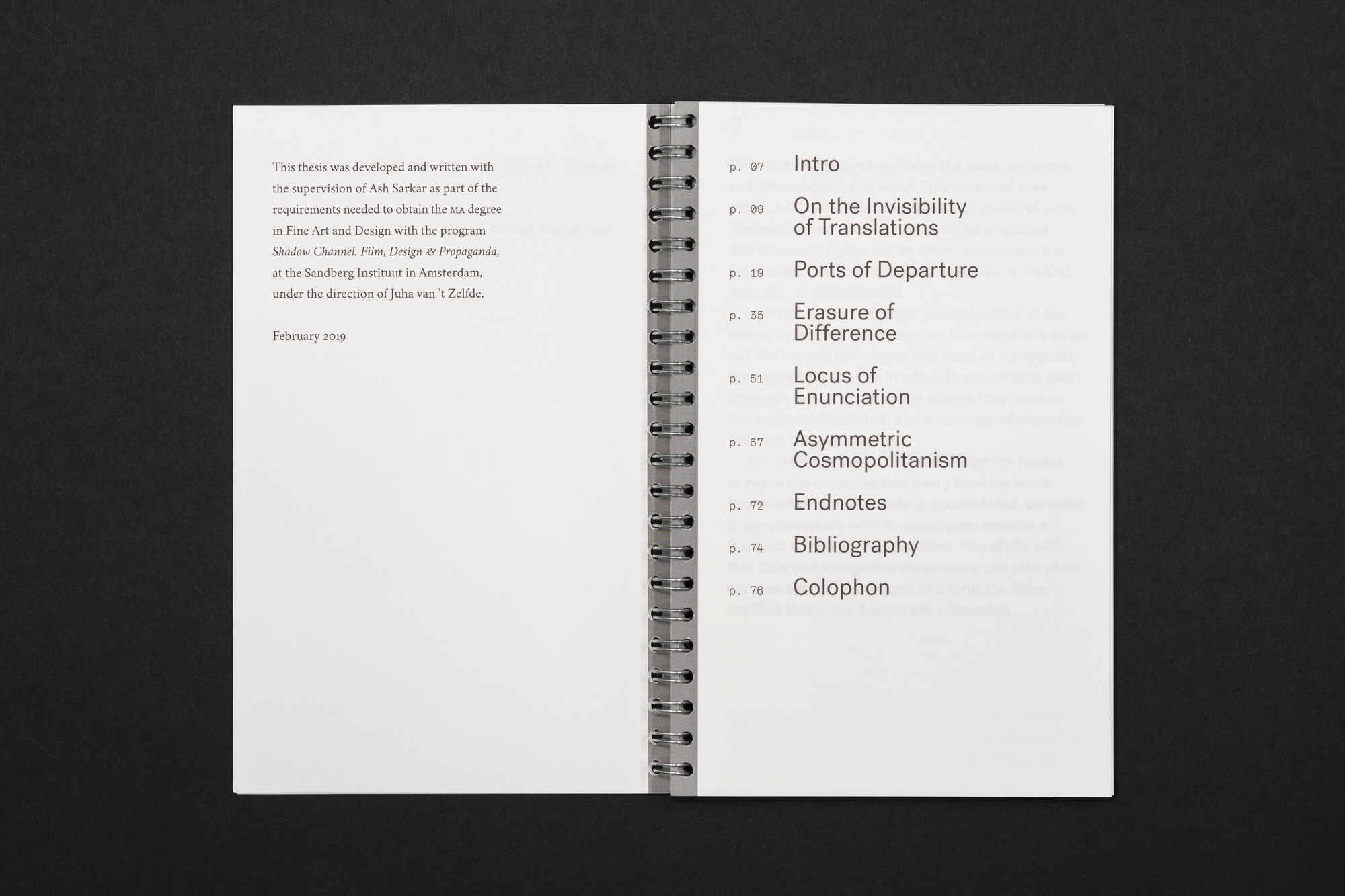
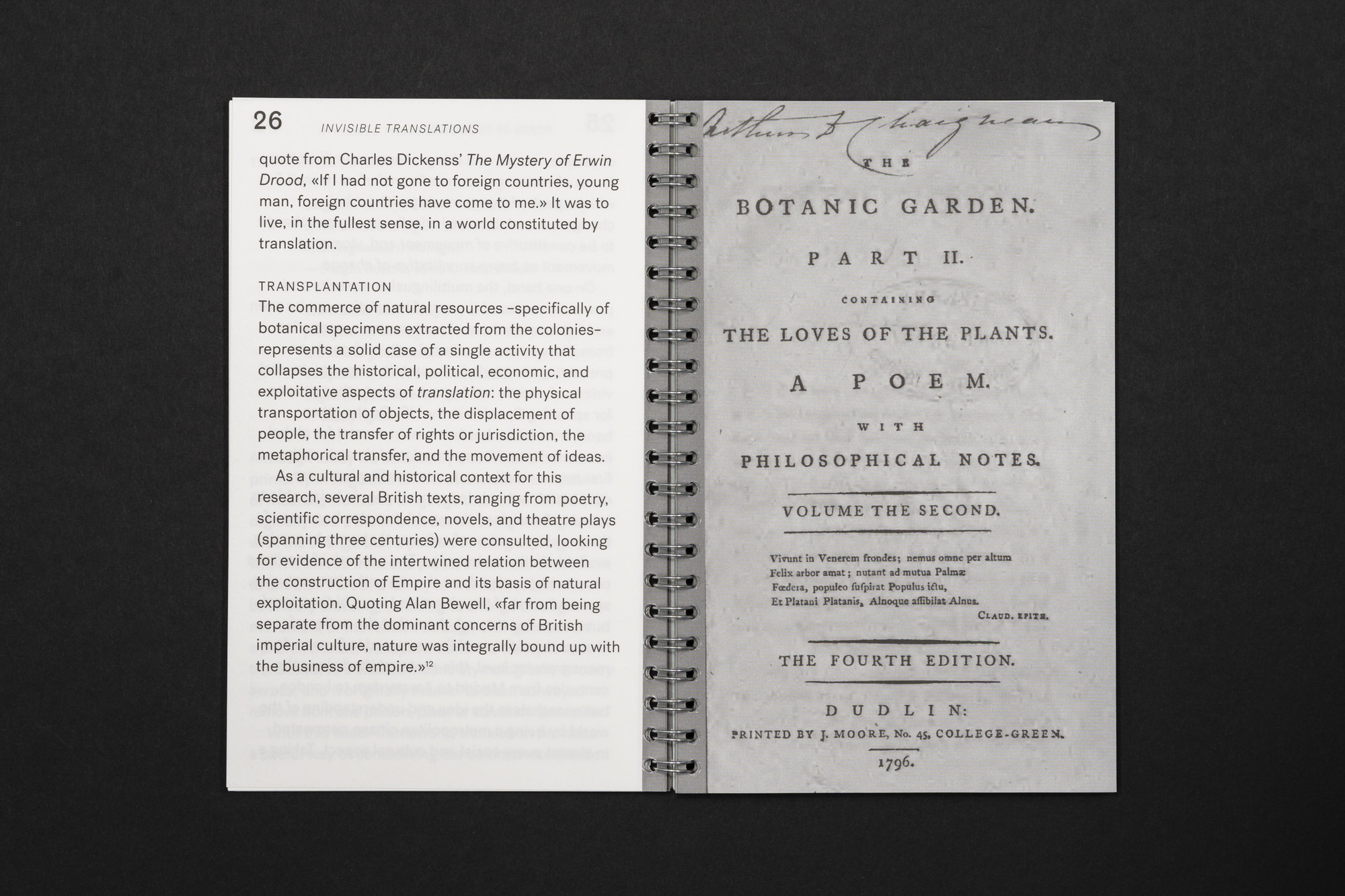
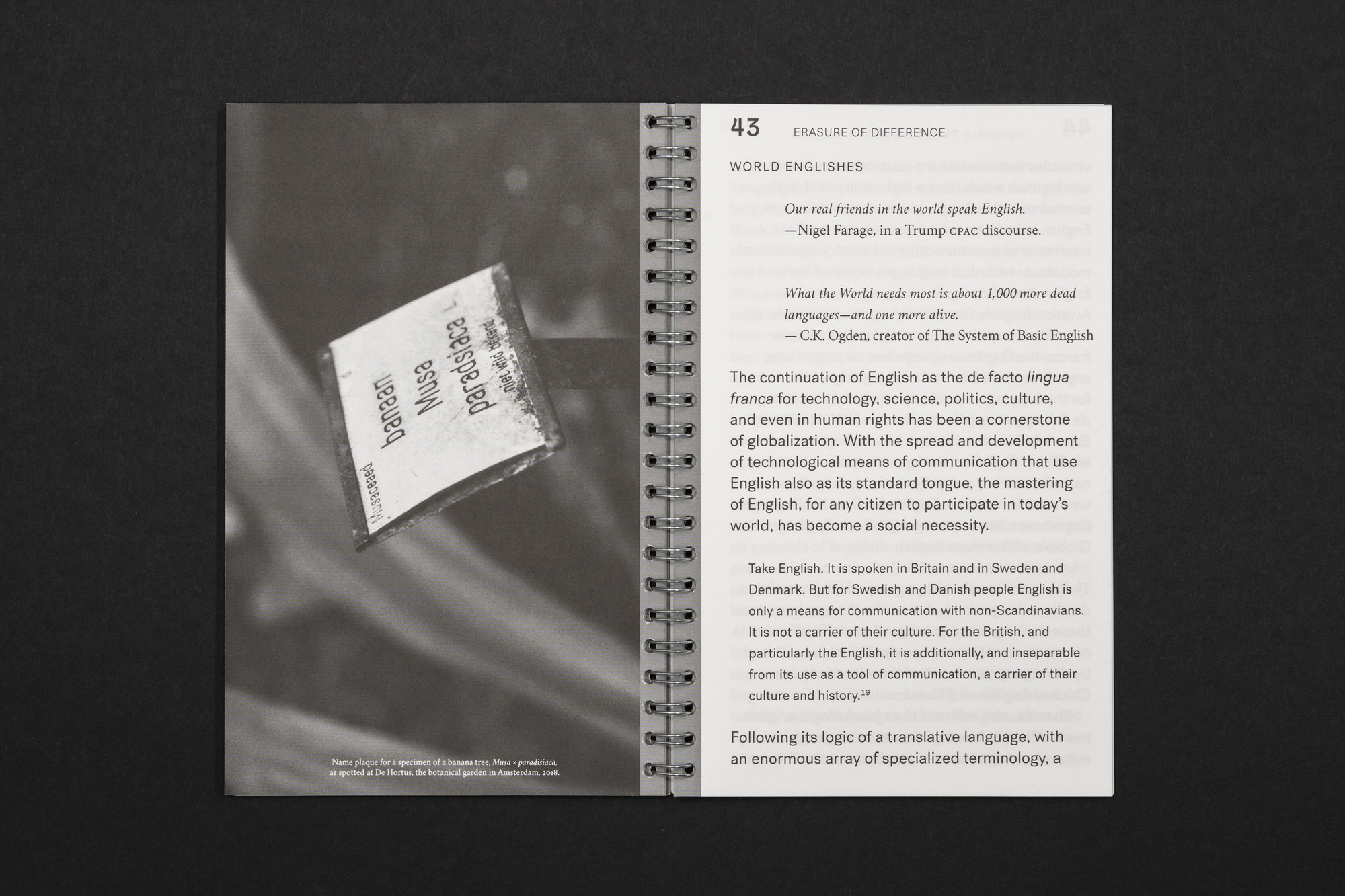
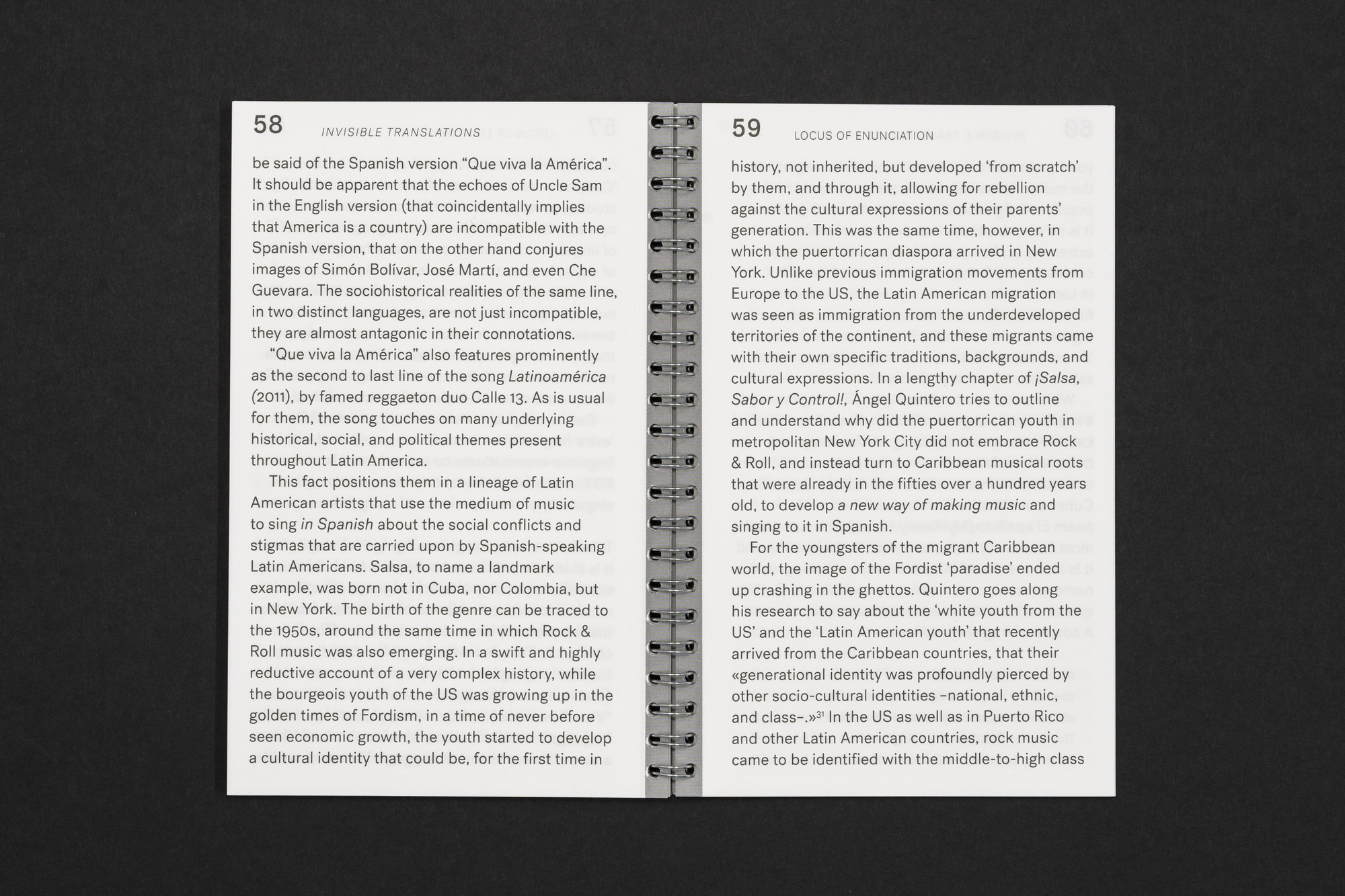
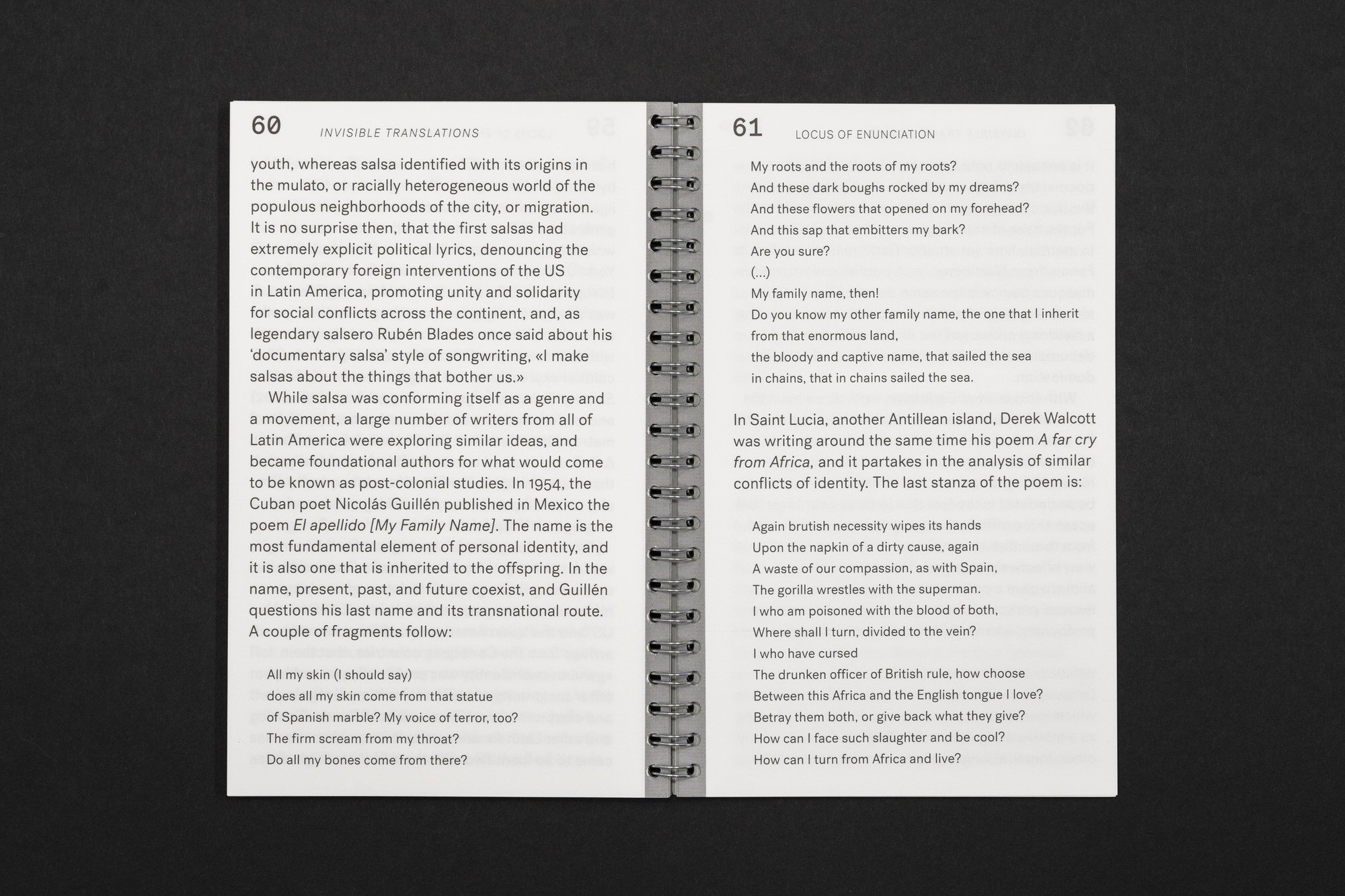
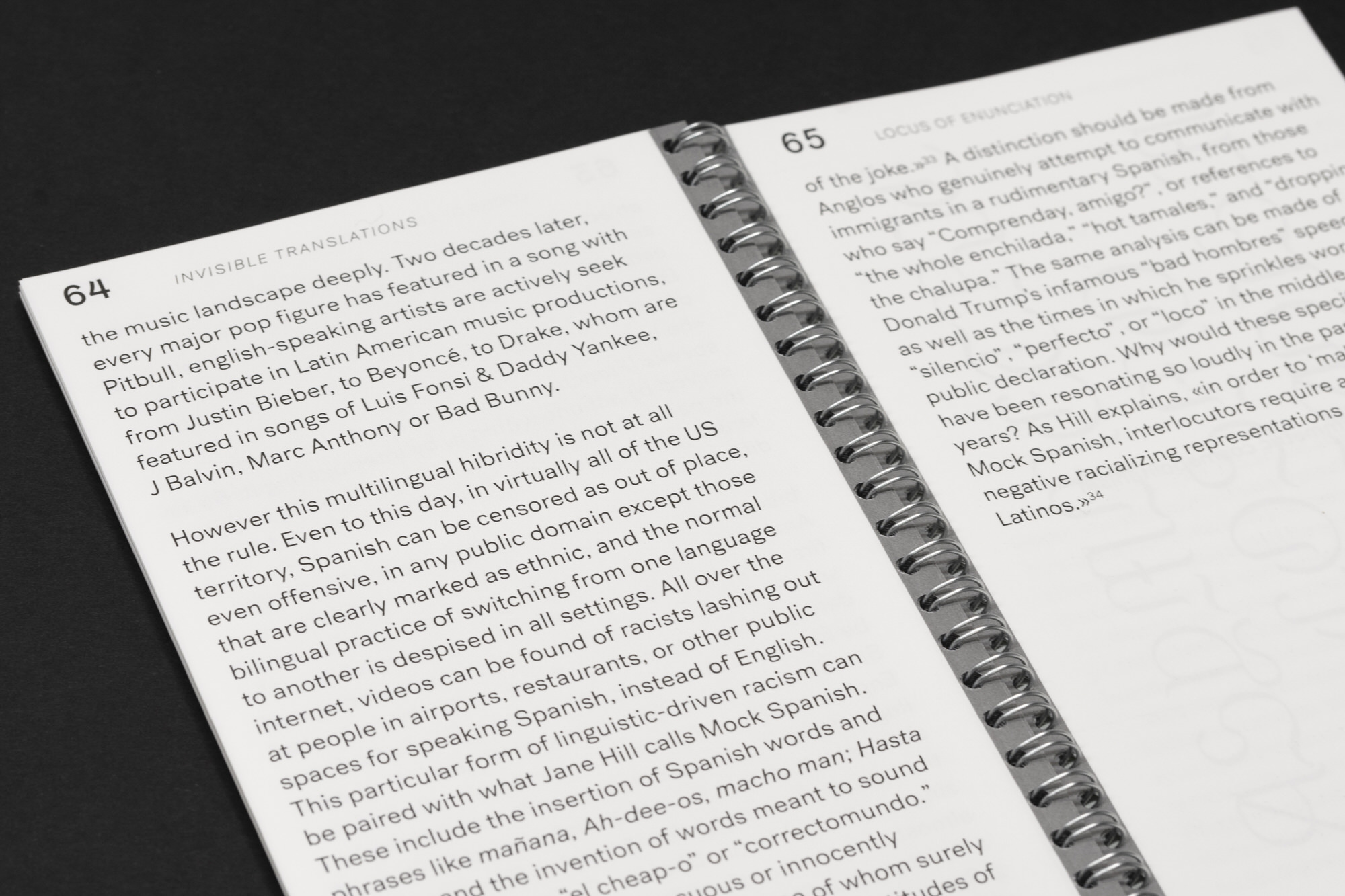
INVISIBLE TRANSLATIONS
2019
full preview on demand contact here
An essay written by
Juan Arturo García
Editorial design
Juan Arturo García
Typefaces
Post Grotesk family, by Josh Finklea for SharpType
Blocus, by Martin Desinde
Crimson family, by Sebastian Kosch
Special thanks
Este libro se realizó con apoyo del Fondo Nacional para la Cultura y las Artes a través del Programa de Becas para Estudios en el Extranjero 2018.
—
